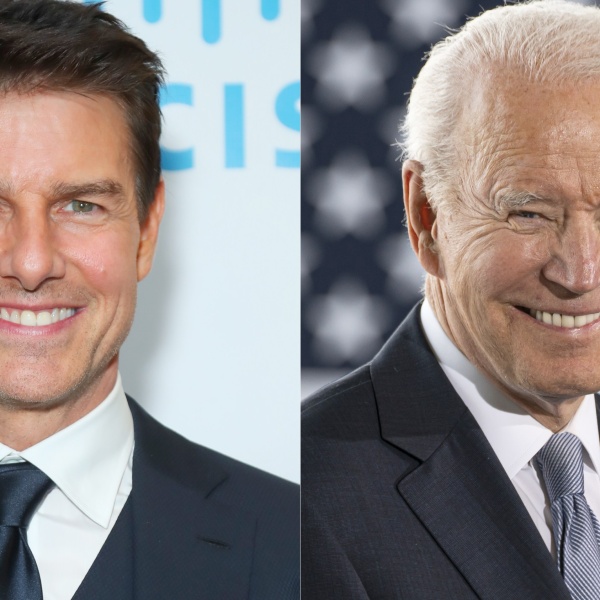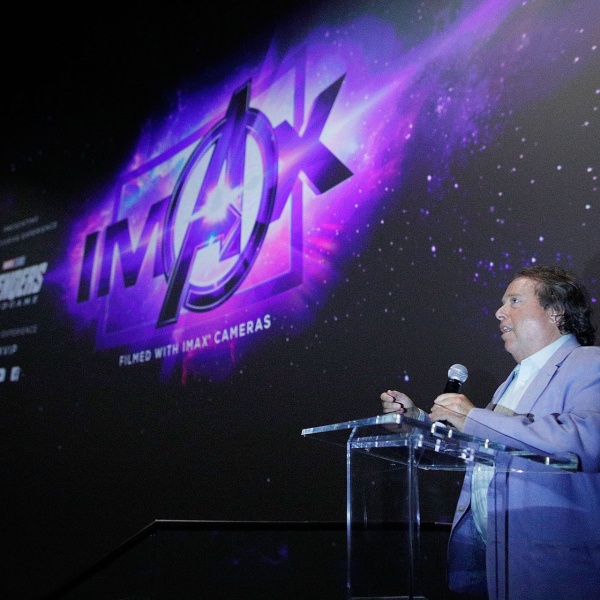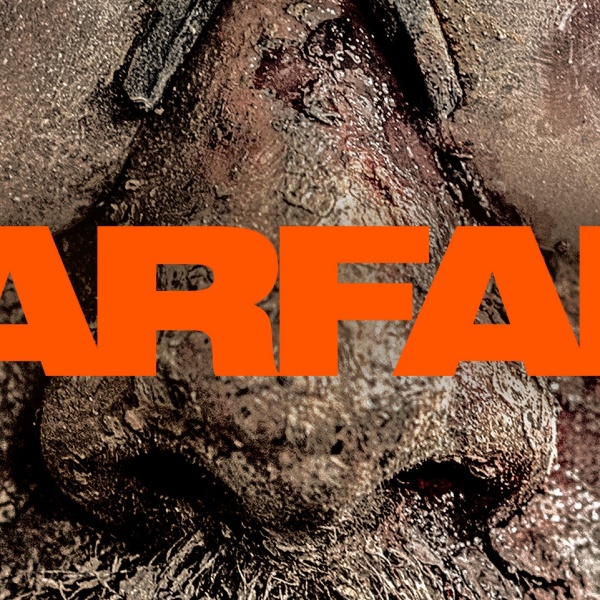
Well-paced, classical in nature, and featuring a completely different setting — the 1940s during WWII which makes it a big tonal departure from other Marvel Films — “Captain America: The First Avenger,” is a relatively muscular and sturdy super-hero tale which is sometimes facile, but effective enough to meet most of its goals and aims.
Joe Johnston‘s handsome-looking and earnest picture has been something of a superhero movie X-factor this summer. Would the super-hero picture transcend its somewhat marginalized placement in the comic book canon and become an above-the-board hit like “Thor“? Or would its period setting and overt stylization alienate potential audiences, as “X-Men: First Class” did, to a degree, earlier this summer? (Let’s not compare it to “Green Lantern.” Nothing deserves that woe.) Quite frankly we didn’t have much to go on – a couple of trailers that valued the tease over explicit explanation and a few, mostly first-act clips that held back the sizzle – but at this point, late in the summer movie game, we’d welcome a snappy surprise from the boys at Marvel Studios and Paramount Pictures.
Thankfully, they’ve mostly delivered. While far from revolutionary or breaking the mold, “Captain America” doesn’t even try to reinvent the wheel. Instead, it’s a crisp, honey-hued adventure that’s light on the subtext, heavy on the tons-of-shit-blowing-up and yet filled with grounded character motivations that keep the film form ever feeling ridiculous. Stylishly directed and replete with well-textured art design and costumes, with the cast stepping up to the plate nicely, the WWII-era pic doesn’t have to stretch believability in the way that most comic book movies do, with a story and superhero rooted in a real life event that threatened the world. And whereas “Thor” and “Iron Man 2” felt like commercials for the Marvel and ‘Avengers‘ universe, “Captain America,” feels very much like an stand-alone old school adventure (aside from the unneccesary and tacked on coda of course) that nails its period-piece tone.

After a brief (and somewhat extraneous) present day prologue set in the Arctic, we’re whisked back to 1942 and introduced to Steve Rogers (Chris Evans) as a scrawny, good-natured Brooklyn kid who tries, repeatedly, to enlist in the military and keeps getting rejected due to a litany of health issues. While his character is simple, a skinny kid with a ton of heart, who is less patriotic then the comics and simply a man that feels offended by any injustice, Chris Evans does an admirable job of making his thin set-up work. There’s a palpable desire to overcome his circumstances in life and you believe this is simply someone who wants to help in any way he can.
At this point, we’re not sure how much of Chris Evans we’re actually seeing, since thanks to some subtle and surprisingly effective computer effects (the kind that turned Brad Pitt into a little old man in “The Curious Case of Benjamin Button“), the strapping actor is turned into a miniscule pipsqueak. His best friend, Bucky Barnes (Sebastian Stan), is about to deploy, and he’s filled with envy. Overhearing Rogers’ patriotic enthusiasm — he’s attempted to enlist five separate times and has been rejected at every turn — a military doctor named Erskine (Stanley Tucci, perhaps relishing his role slightly too much, but still extremely charming) enlists Rogers to be part of a super secret project overseen by Colonel Chester Phillips (Tommy Lee Jones), Peggy Carter (Hayley Atwell), and Iron Man’s father, Howard Stark (Dominic Cooper).
In the program, the weakling Rogers is transformed into a super soldier, our titular hero, but a sleeper agent, working for the nefarious Hydra organization (a lethal scientific subset of the Third Reich), interrupts the procedure and effectively shuts down the program. As a result Rogers’ military career is sidelined, and bureaucrats dupe him into thinking he can truly help his nation by selling bail bonds in a chintzy costume as Captain America. Wanting to please, he acquiesces, but the lion-hearted kid still has that nagging feeling his new abilities could be better served elsewhere. It’s this little section of the movie that is the strangest and most satisfying subplot (it probably doesn’t hurt that there’s a new Alan Menken song and musical number that accompanies it), with Rogers’ dream to be part of the military curdling into something unpleasant and trite. Captain America briefly loses his moral compass in these moments, his head full of the intoxicating feel of women who adore him and audiences who eat up his salesman shtick and jumping at the the opportunity to redeem himself feels like a natural extension of the character.
When he gets wind of a plot by Hydra, led by the villainous Red Skull (Hugo Weaving), that includes the kidnap and torture of Bucky, he leaps into action, proving his mettle and saving hundreds of American lives. He’s given his own unit, the Howling Commandoes (colorfully led by Neal McDonough as Dum Dum Dugan with a good turn by Derek Luke as Gabe Jones), as they race against time to bring down the Red Skull and foil his evil plans that involve a magical, glowing doodad from the Asgardian realm (i.e. the Cosmic Cube teased during the post-credits sequence of “Thor”). While yes, a “we’re kicking-ass” montage across Europe is perhaps the film’s most egregious moment — and tonally it just feels way too modern with its speed-ramping and clipped editing — the addition of the Commandos gives the picture some nice shades of color to play with.
The film’s heroic, old-school verve is both its biggest asset and its biggest shortcoming. On the one hand it’s a delight to see a superhero who isn’t moodily moored by his own existential angst and fights simply because he thinks it’s the right thing to do (though, yes, he has his own issues to overcome too). On the other, it makes things occasionally two-dimensional – we have a hero decorated in the colors of the American flag fighting a villain whose face is the literal epitome of melted devilishness. The total lack of irony or self-awareness is a welcome treat, particularly in an early scene where Rogers and Bucky are at the utopian World’s Fair — a precursor to the Stark Expo seen in “Iron Man 2” — but it just as often causes the movie to teeter on the verge of old fashioned irrelevance, which can be heard throughout in the shoe-leathery dialogue by screenwriters Christopher Markus and Stephen McFeely (with the invisible hand of an un-credited Joss Whedon felt occasionally).
To director Joe Johnston‘s credit, he keeps things moving, and from a visual standpoint knocks it out of the park. With an earlier World War II-set comic book film under his belt (1991’s underrated “The Rocketeer“), he certainly has the chops to capture this milieu, and much of his design work (he was responsible for the look of “The Iron Giant,” after all, and contributed fascinating rough drafts of Buzz Lightyear) is anchored in this era. Unlike in “X-Men: First Class,” with the technology feeling anachronistically slick, all the devices here feel appropriately clunky and utilitarian – Rick Heinrichs‘ production design emphasizes clanking gears, unwieldy control panels and thick cables that run this way and that. In fact, the WWII stuff is so well realized that you almost moan in disagreement when the movie flashes forward 70 years for a contemporary coda. Johnston stages the action sequences well, with a keen eye on geographic orientation and an abundance of actual, honest-to-god practical effects (Alan Silvestri‘s rousing score helps too). For our money, the two most breathlessly orchestrated set pieces involve a runaway train and an aerial bomb; both are thrilling and effective and do their best to absorb the tone of a successful action sequence straight out of one of the “Indiana Jones” films.
For all of its exemplary accomplishments, though, much of “Captain America” can still feel somewhat square, poorly defined and without real bite. The villain’s plot, in particular, is hazily explained, and at this point in the Marvel movie universe, some distinction should be made between the glittery blue goo that the Red Skull wants to utilize for world domination and the glittery blue goo that powers Iron Man’s suits and the glittery blue goo that everyone was after in “Thor.” If not, you run the risk of these movies just blurring together into some unrecognizable slop. Also, unlike “X-Men: First Class,” whose third act felt much deeply indebted to the intersection of superhero theatrics and real world peril (in the form of the Cuban Missile Crisis), “Captain America” pulls away from historical parallels, having the Hydra organization splinter away from the Nazis, and none of the grim realities of the Second World War (like, say, the Holocaust) are even mentioned which puts the film straight into fantasy land and robs itself of any opportunity to raise some dramatic stakes. Plus, as spectacular as some of the action sequences are, they often lack any real tension or danger because the characters are so damn good that there’s no chance of any harm coming to them (in today’s queasy political climate, such black and white stoicism does seem a little antique).
Still, “Captain America,” for the most part, is a good, entertaining romp that doesn’t ask too much of its audience other than to sit back and enjoy the ride, so it’s hard to fault in that sense. You may roll your eyes much less than most recent Marvel movies (including “Iron Man 2” and “Thor”) and the film may exist solely as a really long, really expensive commercial for future Marvel cinematic product (it helps that the picture’s “Avengers” nods are much more subtle than the previous two films), but it’s hard not to crack a smile at the refreshingly old fashioned, all-American action movie theatrics. For all of its minor issues, you’ll still swell with do-the-right-human-thing pride and be rooting for Steve Rogers to save the day. [B]




